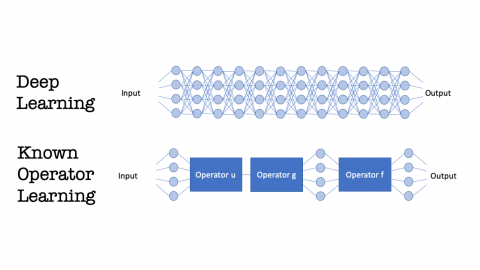X-Ray Material Decomposition
Authors: Maier, A., Schebesch, F., Syben, C., Würfl, T., Steidl, S., Choi, J. H., & Fahrig, R.
In this paper, we consider the use of prior knowledge within neural networks. In particular, we investigate the effect of a known transform within the mapping from input data space to the output domain. We demonstrate that the use of known transforms is able to change maximal error bounds and that these are additive for the entire sequence of transforms. In order to explore the effect further, we consider the problem of X-ray material decomposition as an example to incorporate additional prior knowledge. We demonstrate that the inclusion of a non-linear function known from the physical properties of the system is able to reduce prediction errors therewith improving prediction quality from SSIM values of 0.54 to 0.88. This approach is applicable to a wide set of applications in physics and signal processing that provide prior knowledge on such transforms. Also, maximal error estimation and network understanding could be facilitated using this novel concept of precision learning.
Reference
Maier, A., Schebesch, F., Syben, C., Würfl, T., Steidl, S., Choi, J. H., & Fahrig, R. (2018, August). Precision learning: towards use of known operators in neural networks. In 2018 24th International Conference on Pattern Recognition (ICPR) (pp. 183-188). IEEE.
